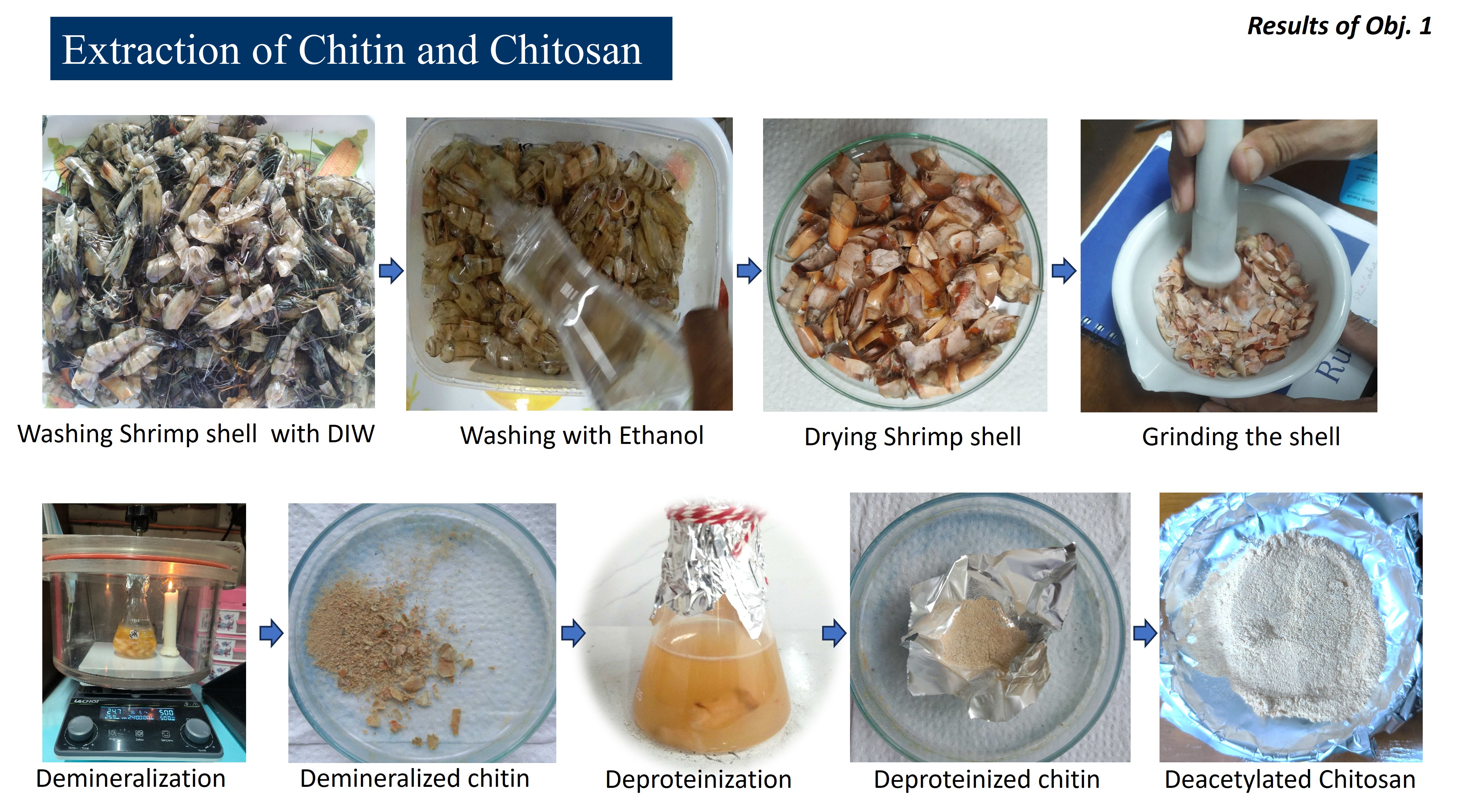Biogenic extraction of nanoparticle from shrimp waste as antimicrobial in broiler farming
Mymensingh
Antibiotic residues in poultry and poultry products have been considered a major public health concern because of their association with the emergence of resistant environmental microflora. Hence, developing new antimicrobials as an alternative to antibiotics by enhancing the antimicrobial properties of natural materials could be a step towards tackling such emerging catastrophes. Focusing on this, the current proposal was designed for the development of Chitosan nanoparticles (ChiNPs) as a new antibacterial nanomaterial for rearing safe poultry.
For developing antimicrobial nanomaterials shrimp shell was employed as a natural source of chitin from which chitosan biopolymer was extracted for synthesizing ChiNPs. During chitosan extraction, an eco-friendly anaerobic microbial biodegradation process was employed for deproteinization and demineralization. The nanoformulation of ChiNPs was performed by applying green as well as chemical protocol. The antimicrobial activity of synthesized chitosan nanoparticles was evaluated in vitro against bacteria isolated from poultry.
For biogenic extraction, the potential decomposer bacterial was isolated and identified by PCR using genus-specific where the amplified band for 463F and 463R, LbiMA1 and R161, and PA-GSF and PA-GSR primers at 463 bp, 250bp, and 618bp indicated the presence of Bacillus spp., Lactobacillus spp., and Pseudomonas spp. The formation of chitosan powder was realized through FTIR and XRD investigations where the infrared spectra at 564 cm–1, 711 cm–1, and 1174 cm–1 for C–O–C, CH2, and C–O chemical groups indicated the formation of chitosan powder during both chemically and biogenically extraction process. Additionally, the formation of ChiNPs was realized through Uv-Vis spectroscopic analysis where the ChiNPs specific ʎ-max peak at between 300–320 nm was found from citrus lemon juice-based synthesis of NPs.
The potential decomposer bacteria were isolated and identified. The chitosan powder was extracted biogenically using the isolated decomposer bacteria. Chitosan nanoparticle was synthesized eco-friendly, and chemically, using the extracted powder. The formation of chitosan powder and ChiNPs was confirmed by physical characterization. The yielded particles showed potential antibacterial activity against laboratory isolates.
The successful accomplishment of this project will improve the socio-economic status of the farmers by offering safe and healthy broiler production by using the developed antibacterial nanomaterials as an alternative to antibiotics. Through the production of broiler without antibiotics the value chain of the broiler meat will be increased thereby farmers will get extra profit from it. Although the proposed antibacterial ChiNPs have growth-promoting activities and thus the farmers would produce healthy broilers without employing commercial antibiotics and growth-promoting hormones ultimately the farmers will be benefited
Large scale green synthesis of antibacterial nanoparticles for commercial purpose and using in the poultry industry as an alternative to antibiotics and also for growth promotor.

